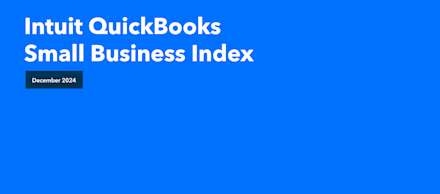
Intuit QuickBooks Small Business Index, December 2024
Simple, smart accounting software - no commitment, cancel anytime

FINANCE, BUDGETS AND CASHFLOW
On 24 September, chancellor Rishi Sunak outlined the economic support available to businesses and the self-employed over the next few months.
In this post, we’ll explain what the Winter Economy Plan 2020 is, and how it affects you. Check our small business blog for more helpful rundowns of any future changes.
It’s the government’s new range of economic support packages. The Winter Economy Plan was announced as new restrictions were put in place to control the spread of COVID-19 and before the end of the furlough scheme at the end of October.
In his speech, the chancellor stressed the importance of striking a balance between protecting public health and the economy. The measures are set to run for six months, but those plans may change, depending on the situation.
The focus of the government’s policies is to protect jobs, but the chancellor has admitted that he can’t save every one. While the furlough scheme was introduced to help businesses that had to close during lockdown, these new measures will support viable businesses at a time of reduced demand.
As the furlough scheme ends, the new Job Support Scheme (JSS) is being introduced. The JSS will give financial support to people who can’t work their full hours and protect their jobs during a time of reduced demand.
Under the scheme, people who work 33% of their hours will receive 77% of their usual pay. Employers will pay the first third of wages in full, with the remaining two thirds split between employers and government.
All small and medium-sized businesses can claim this support, but larger companies must show that their turnover has taken a hit during the crisis. Government grants are capped at £697.92 per worker per month, but people making less than £38,000 a year should be fully covered.
Businesses can move their workers on and off the JSS whenever they like, as long as they join it for at least seven days. This provides important flexibility, allowing employers to split reduced hours and wages between their employees.
The job retention bonus is still in place. This is the one-off payment of £1,000 made to employers who keep furloughed workers on until at least 31 January 2021.
The Winter Economic Plan 2020 includes an extension of the Self-Employment Income Support Scheme that helped so many through the first six months of the pandemic. Sunak announced two new grants: one covering the period from this November to next January, and the next set to cover February to April 2021.
Check if you’re eligible for the Self-employment Income Support Scheme in October
The terms and conditions of these new grants haven’t changed. They don’t have to be repaid, but tax and National Insurance contributions are due on the money received. To be eligible you must make more than half of your income from self-employment and have filed a self-employed tax return for the tax year 2018-19. Applicants must also state that COVID-19 HAS ‘adversely affected’ their business, but it’s not clear how people will have to demonstrate this.
Support is less generous this time around, with claimants eligible to receive just 20% of their average monthly profits, up to a total of £1,875. The government also reserves the right to adjust the terms and amount of the February-April grant ‘to respond to changing circumstances’.
On top of the support mentioned above, small businesses and the self-employed can take advantage of a range of tax and loan relief programmes.
Tax Relief
Over 500,000 businesses have already deferred tax payments this year, and there’s a New Payment Scheme to help them deal with this. Previously, repayment was due in a single lump sum at the end of March 2021, but the bill can now be spread over 11 smaller repayments, with no interest added. This will allow businesses to settle their accounts over a longer period, avoiding a big financial hit.
Self-employed people who pay tax through Self Assessment will also be able to defer their outstanding tax bills for a further 12 months, to January 2022.
The temporary reduction of VAT to 5% in the hospitality and tourism sectors, has also been extended from 13 January 2021 to 31 March 2021.
Loans
The winter economy plan also addresses Bounce Back Loans. The deadline to apply for new loans has been extended from 4 November 2020 to 30 November. The same extension has been applied to other programmes like the Coronavirus Business Interruption Loan Scheme.
The terms of repayment have also been changed: recipients now have ten years rather than six to pay back their loans. This ‘pay as you grow’ scheme allows businesses to shift their debt without harming their operations. What’s more, the government has confirmed that these loans will have no negative effects on your credit rating.
Business leaders have been broadly supportive of the plan, with CBI director-general Dame Carolyn Fairbairn saying that the new measures will “reduce the scarring effect of unnecessary job losses”, helping make 2021 ”a year of growth and renewal”.
Mike Cherry, OBE, chair of the Federation of Small Businesses, was similarly optimistic, calling the chancellor’s measures a “swift and significant intervention” that would “help preserve livelihoods” and ease pressures on businesses during a “challenging and uncertain winter”.
The future remains uncertain, but the Winter Economy Plan has provided guidance for small businesses and the self-employed as well a range of support, from direct grants to better repayment terms on loans and taxes.
Feel you’re better informed about the winter economic plan 2020? The QuickBooks blog covers a wide range of business-related topics – it’s all part of our mission to help small businesses grow.
9.00am - 5.30pm Monday - Thursday
9.00am - 4.30pm Friday